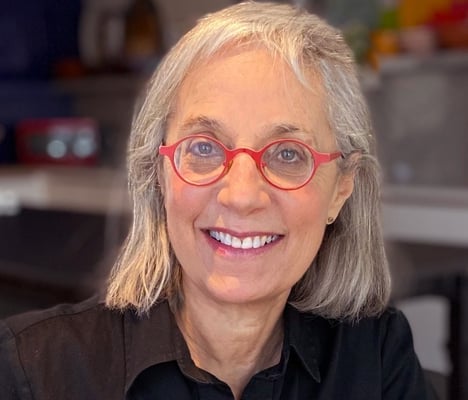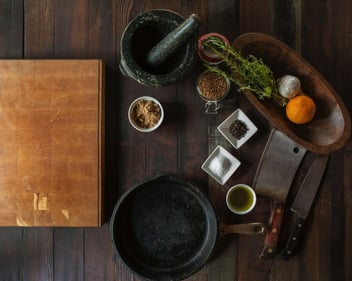Whether your Food Writing Competition entry explores the role of a certain food in a cultural celebration, the life cycle of an ingredient, or a beloved family recipe, the goal of your piece should be to transport your reader. And the surest way to do this is to ground your piece in sensory details, the kind that will put readers next to you in the kitchen, at the table, or in the field. As Guest Judge Sally Sampson says, “Tell me about a place, a person, a recipe, it doesn’t really matter what it is, it matters if I want to go there, meet that person, or get hungry!”
Read on to get more great tips from the Founder and President of ChopChop Family, learn about what it takes to write a cookbook, and find out what Sally’s looking for in a winning entry!

You’re the Founder and President of ChopChop Family, which encourages and teaches young people to cook with their families. How did you first get started in the food world, and what inspired you to focus on young people?
I was a picky eater as a child and rather than cater to my whims, my mother encouraged me to cook what I wanted to eat. She gave me free rein in the kitchen and I learned to love to cook. When I was in high school I imagined myself having a little cafe when I got older. I can actually remember the conversation I had with my mother, walking down the street in NYC, where I grew up. When I graduated from college (with a degree in psychology), I did just that: I opened a little cafe in Brookline Village, MA. Eventually I started to write for local magazines and newspapers and when I finally wrote a cookbook (based on the food from my cafe), I realized that I preferred writing about food to cooking for the public. Ten years of running a cafe led me to wanting to make a greater impact and I felt that teaching and inspiring kids to cook was what I really wanted to do.
What are some of your favorite memories around food and making food, and how have these experiences informed your career?
It’s such a great question and one I haven’t been asked, or even thought through. Most people who love to cook will tell you that they have memories of cooking with a beloved family member but I really learned to cook by studying cookbooks and cooking alone. My joy came from sharing what I made with friends and family, which I still love to do (and I still enjoy the solitary pleasure of cooking alone.)
You’re also a cookbook author! Can you give us a behind-the-scenes look at what goes into writing a cookbook, from beginning to publication?
Do you have all day? It takes a minimum of two years to go from idea to publication. First you have to come up with an idea and get an agent who loves that idea. Then you write a proposal, which you edit and edit and edit and edit, and if you have a good agent, they poke holes in it. The agent then approaches editors who have an interest in your topic. At that point you hope several editors want your book and have a bidding war but most of the time, one editor is interested. You usually get a year to write the book, which means testing and cooking and testing and cooking as well as writing and editing yourself. After you hand it in, the publisher usually takes about a year to edit and copy-edit. I’ve written or co-written 27 cookbooks and I have loved just about every minute of it (remember I love to cook) but it’s a lot of very hard work.
Because food is so intertwined with everything from culture and history to environment and social justice, there are many angles a young writer can choose to explore in their Food Writing Competition entry. How do you suggest a writer go about deciding on a topic?
The most important thing is to write about something that matters to you.
What are the elements that make for good food writing, and what tips do you have for young writers on incorporating them into their writing?
One of my favorite food writers is Laurie Colwin. When you read her articles and books, you want to meet her friends, see what she’s seeing, all the while stopping constantly to go into the kitchen and cook what she’s cooking. If you’re writing about an experience, take me there, make me want to be in your shoes, or teach me something new.
What are you looking for in a winning entry?
I’d like to be transported. Tell me about a place, a person, a recipe, it doesn’t really matter what it is, it matters if I want to go there, meet that person, or get hungry!





